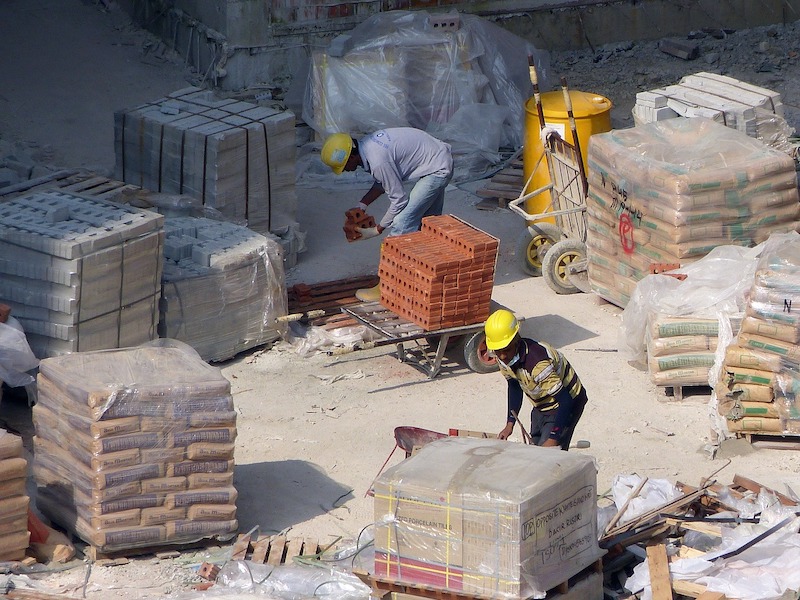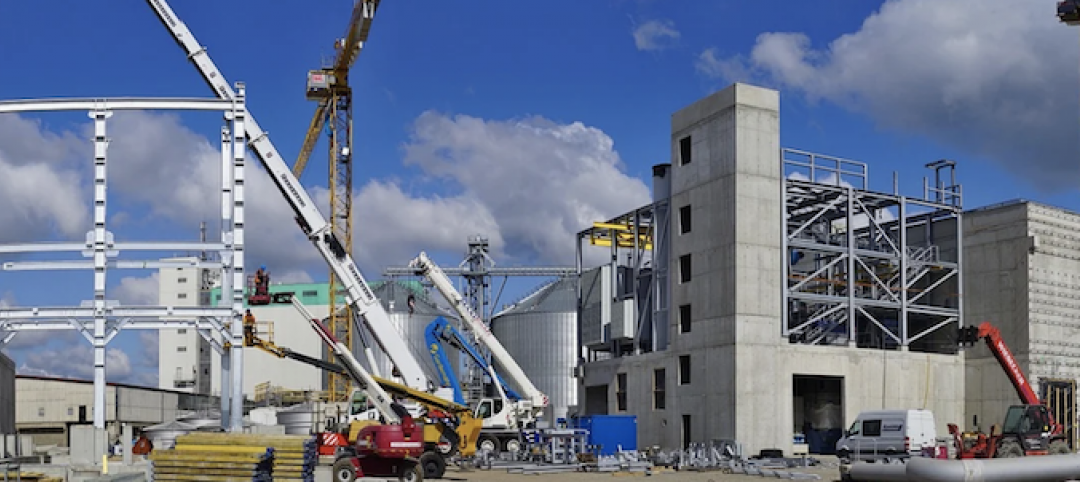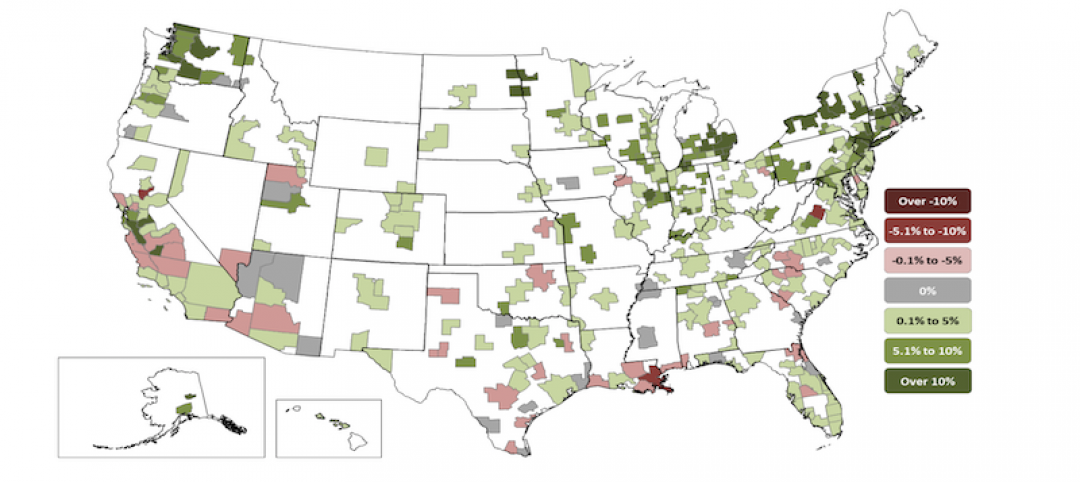Construction employment was unchanged from March to April as nonresidential contractors and homebuilders alike struggled to obtain materials and find enough workers, according to an analysis by the Associated General Contractors of America of government data released today. Association officials said the industry’s recovery was being hampered by problems getting stable prices and reliable deliveries of key materials, while the pandemic and federal policies were making it harder for firms to find workers to hire.
“Contractors are experiencing unprecedented intensity and range of cost increases, supply-chain disruptions, and worker shortages that have kept firms from increasing their workforces,” said Ken Simonson, the association’s chief economist. “These challenges will make it difficult for contractors to rebound as the pandemic appears to wane.”
Construction employment in April totaled 7,452,000, matching the March total but amounting to 196,000 employees or 2.6% below the most recent peak in February 2020. The number of former construction workers who were unemployed in April, 768,000, dropped by half from a year ago and the sector’s unemployment rate fell from 16.6% in April 2020 to 7.7% last month.
“The fact that employment has stalled—despite strong demand for new homes, remodeling of all types, and selected categories of nonresidential projects—suggests that contractors can’t get either the materials or the workers they need,” Simonson added. The economist noted that many firms report key materials are backlogged or rationed, while others report they are having a hard time getting former workers to return to work. He added these factors are contributing to rising costs for many contractors, which are details in the association’s updated Construction Inflation Alert.
Although employment was nearly stagnant for the month for both residential and nonresidential construction, the sectors differ sharply in their recovery since the pre-pandemic peak in February 2020. Residential construction firms—contractors working on new housing, additions, and remodeling—gained only 3,000 employees during the month but have added 46,000 workers or 1.6% over 14 months. The nonresidential sector—comprising nonresidential building, specialty trades, and heavy and civil engineering contractors—shed 3,000 jobs in April and employed 242,000 fewer workers or 5.2% less than in February 2020.
Association officials said that the temporary new federal unemployment supplements appear to be keeping some people from returning to work, while others are being forced to care for dependents not yet back in school or day care, or loved ones afflicted with the coronavirus. They added that federal tariffs and labor shortages within the shipping and manufacturing sector are a major reason for the rising materials prices and supply chain problems.
“Ironically, the latest coronavirus relief bill may actually be holding back economic growth by keeping people away from work at a time when demand is rebounding,” said Stephen E. Sandherr, the association’s chief executive officer. “Federal officials need to look at ways to encourage people to return to work, end damaging tariffs on materials like steel and lumber, and act to ease shipping delays and backlogs.”
Related Stories
Market Data | Aug 5, 2020
6 must reads for the AEC industry today: August 5, 2020
San Jose's new tallest tower and Virginia is the first state to adopt COVID-19 worker safety rules.
Market Data | Aug 4, 2020
7 must reads for the AEC industry today: August 4, 2020
Construction spending decreases for fourth consecutive month and 100% affordable housing development breaks ground in Mountain View.
Market Data | Aug 3, 2020
Construction spending decreases for fourth consecutive month in June
Association officials warn further contraction is likely unless federal government enacts prompt, major investment in infrastructure as state and local governments face deficits.
Market Data | Aug 3, 2020
6 must reads for the AEC industry today: August 3, 2020
The future is a number game for retail and restaurants and 5 reasons universities are renovating student housing.
Market Data | Jul 31, 2020
5 must reads for the AEC industry today: July 31, 2020
Vegas's newest resort and casino is packed with contactless technology and Mariott, Hilton, and IHG dominate the U.S. hotel construction pipeline.
Market Data | Jul 30, 2020
Marriott, Hilton, and IHG continue to dominate the U.S. hotel construction pipeline at Q2’20 close
Hilton’s Home2 Suites and IHG’s Holiday Inn Express continue to be the most prominent brands in the U.S. pipeline.
Market Data | Jul 30, 2020
7 must reads for the AEC industry today: July 30, 2020
Millennium Tower finally has a fix and construction costs decrease for the first time in 10 years.
Market Data | Jul 29, 2020
62% of metros shed construction jobs from June 2019 to June 2020 as Association calls for new infrastructure funding, other relief steps
New York City and Brockton-Bridgewater-Easton, Mass. have worst 12-month losses, while Austin and Walla Walla, Wash. top job gainers.
Market Data | Jul 29, 2020
6 must reads for the AEC industry today: July 29, 2020
The world's first net-zero airport and California utility adopts climate emergency declaration.
Market Data | Jul 28, 2020
For the fourth consecutive quarter, Los Angeles leads the U.S. hotel construction pipeline at the close of Q2’ 20
New York City continues to have the greatest number of projects under construction, with 106 projects/18,354 rooms.

















